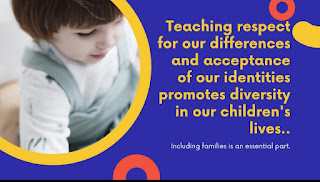Nutrition is an essential component in brain development, especially during pregnancy and during the early years, which is the time of most rapid brain formation and development of cognitive, physical, and socio-emotional skills. But it is also important throughout the lifespan. However, deficiencies in nutrition during pregnancy and early years may produce damage to these skills and development affecting school productivity and adulthood. Nutrition deficiencies also depend on factors, like experiences and input from the environment, the timing of nutrient deprivation, the degree of nutrient deficiency, and the possibility of recovery.
Brain formation and development in early stages
About 22 days after conception, the neural plate and neural tube begin to form, which later becomes the brain and spinal cord. Adequate nutrition including nutrients like folic acid, copper, and vitamin A is crucial in this formation and development. Approximately seven weeks later, cell division creates nerve cells, called neurons and glial cells, which are cells that support neurons. When a neuron is created, it passes to the brain, where it begins to grow axons and dendrites allowing branching connections with other cells in a process called synapses. The process of synapses makes possible the travel of nerve signals from one cell to another.
Beginning in the gestation period and continuing during infancy, this process allows groups of neurons to create pathways to eliminate cells and connections during childhood and adolescence. The process of this elimination depends on the child's experiences with the environment. As a result, cells and connections that are activated are retained and strengthened while those that are not used are eliminated. It also results in one of the primary mechanisms of brain plasticity. Brain plasticity allows the brain to organize and adapt to the environment and reorganize to recover from injury during development.
Evidence of studies has demonstrated that specific nutrients are necessary for brain development, especially in neuron proliferation, axon, and dendrite growth, synapse formation and function, myelination (increment of fatty substance that supports the efficiency of electrical transmission), and neuron apoptosis (programmed cell death). Some of these nutrients are fatty acids, iron, iodine, zinc, choline, and B vitamins, among others.
Healthy nutrition to support brain development
Brain development during pregnancy and during the first two years will determine how the brain will function for the rest of a person's life. It also will decide how a child and later an adult will think and feel. Brain connections influence learning, memory, attention, sensory systems, planning, and the capacity to control impulses, emotions, and mood.
The environment and nutrition are crucial for these connections. Breastfeeding makes a great difference not just for nutrition but for the close contact between the mother and the baby.
Healthy nutrition must include the following nutrients to support healthy brain development.
✔Protein. It can be found in meat, poultry, seafood, beans and peas, eggs, soy products, nuts, seeds, and dairy products.
✔Zinc. It can be found in oysters, many types of meat, fish, dairy products, and nuts.
✔Iron. The best sources are meats, beans and lentils, fortified cereals and bread, dark leafy vegetables, and baked potatoes.
✔Choline. It can be found in meats, dairy products, eggs, and many vegetables.
✔Folate. Liver, spinach, fortified cereals, and bread are rich sources of folate.
✔Vitamin A. Good sources are liver, carrots, sweet potato, and spinach.
✔Iodine. Great sources are seaweed, iodized salt, seafood, dairy products, and grains.
✔Vitamin D. It is known as the "sunshine vitamin". Besides getting it outside, good sources are salmon, fish liver oil, and fortified milk.
✔Vitamin B6. Great sources are liver, other organ meats, fish, potatoes, starchy vegetables, and not citrus fruits.
✔Vitamin B12. It is found in meats, fish, eggs, and dairy products.
✔Long-chain polyunsaturated fatty acids. Easily found as omega-3 fatty acids in fish, fish oils, and other foods fortified with them.
Vegetarian and vegan families will have some challenges getting all these nutrients. It is recommended to visit and meet a nutritionist to get helpful practices of nutrition. For other families that may have limitations and trouble getting a healthy diet, many government-funded programs support healthy nutrition. Some of them are the Special Supplemental Nutrition Program for Women, Infants, and Children (WIC), the Supplemental Nutrition Assistance Program (SNAP), and the Child and Adult Care Food Program.
Some people affirm that we are, what we eat, but eating and having healthy nutrition is more than that. Healthy nutrition is crucial for developing and growing babies and young children. It also includes brain development. Brain functioning will define how an individual behaves, interacts, decides, and thinks. As parents, caregivers, and early childhood professionals, we need to seek that every child receives the healthy nutrition they all deserve. It is our responsibility. The following links provide important information about healthy nutrition and how to get access to it, especially for families and children who need it. Please, feel free to share. We may recognize that to have productive adults in the future, we need to provide useful resources for them now and healthy nutrition is one of the most families and children need!
Useful links
Child and Adult Care Food ProgramReferences
McCarthy, C. (2018, January 23). The crucial brain foods all children need - Harvard Health Blog. Harvard Health Blog. https://www.health.harvard.edu/blog/brain-food-children-nutrition-2018012313168
Prado, E. L., & Dewey, K. G. (2014). Nutrition and brain development in early life. Nutrition Reviews, 72(4), 267–284. https://doi.org/10.1111/nure.12102
“THE FIRST WEALTH IS HEALTH.” –Ralph Waldo Emerson
_______________________
Diana A. Rivera is an Early Childhood Educator, with graduate studies in Educational Psychologist, and author of Be the voice for children. Diana believes and commits to the healthy development, growth, well-being, and learning of all children. The blog posts share ideas and knowledge about educational psychology, child and brain development, parenting, diversity, effective teaching practices, early childhood education, and care to support the empowerment of children and families.









